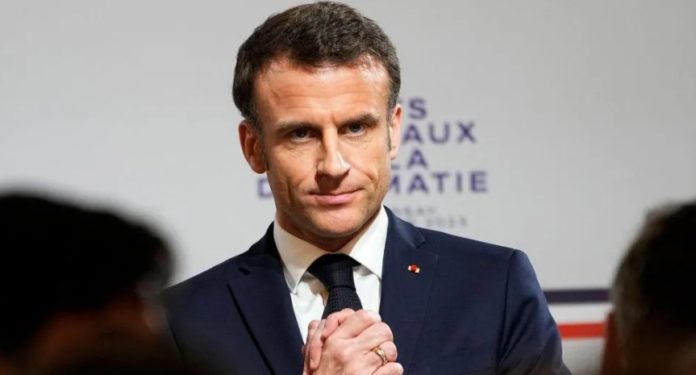France has a range of potential benefits from increased co-operation with Central Asia in terms of economic growth, geopolitical stability and energy security, according to Emerging Europe.
It is hard to overstate the growing importance of France’s ties with Central Asia as French President Emmanuel Macron prepares for an official visit to Kazakhstan and Uzbekistan on 1 and 2 November.
Enhancing cooperation in this region is crucial for France and for Europe as a whole. Strengthening ties with Central Asia can ensure Europe’s energy security, supply rare earth elements and restore the geopolitical balance in the Central Asian region.
Potential co-operation in the energy sector is one of the obvious advantages of strengthening the alliance with Central Asia. For example, Kazakhstan has significant uranium reserves and is the world’s largest uranium producer. Given that France generates about 70 per cent of its electricity from nuclear power, a deeper partnership could ensure a stable supply of uranium for French reactors, Emerging Europe reports.
Moreover, such co-operation could solve Europe’s growing energy problems. Recent turmoil in global energy markets, combined with political tensions, has emphasised the need to diversify Europe’s energy sources. Central Asia, with its untapped hydrocarbon resources and renewable energy potential, represents a viable solution.
Kazakhstan and a number of other Central Asian countries have reserves of rare earth metals, which are important for the transition to green energy. These metals play a key role in the production of a huge range of technologies, from smartphones and wind turbines to batteries for electric cars.
Europe currently relies heavily on China for the supply of these essential minerals. This dependence on a single supply chain is risky and jeopardises its technological progress.
By actively developing ties with Central Asian countries, France and Europe can diversify supply chains of rare earth metals. This will reduce dependence on China, increase economic independence and resilience to possible trade disruptions, according to Emerging Europe.
Kazakhstan plans to hold a referendum on the construction of a nuclear power plant on its territory. Given France’s deep experience in the nuclear industry, this opens up a wide range of opportunities for co-operation.
France is home to some of the world’s leading nuclear energy companies and has enough experience and technical expertise to help Kazakhstan address the challenges associated with building and managing a nuclear facility. The potential partnership involves not only construction, but also knowledge sharing, development of safety measures and long-term maintenance and operating contracts.
Europe should view Kazakhstan’s nuclear energy considerations as consistent with the EU’s broader goals of energy security, climate change mitigation and regional stability. As the EU considers nuclear power a key sector for achieving carbon neutrality by 2050, Kazakhstan’s initiatives could attract allies in the West, Emerging Europe reports.
President Macron’s official visit should mark the beginning of a new era in relations between France and Central Asia. The potential benefits – energy security, geopolitical stability and economic growth – are too significant to ignore.
It is time for France, and by extension Europe, to lead the way in strengthening co-operation and shaping a prosperous, balanced future for Central Asia.
The Central Asian countries and Germany are also keen to strengthen trade co-operation and possibly expand rail links. Earlier, German Chancellor Olaf Scholz attended a meeting with the heads of five Central Asian countries. The leaders discussed financing infrastructure projects and other forms of synergy.
